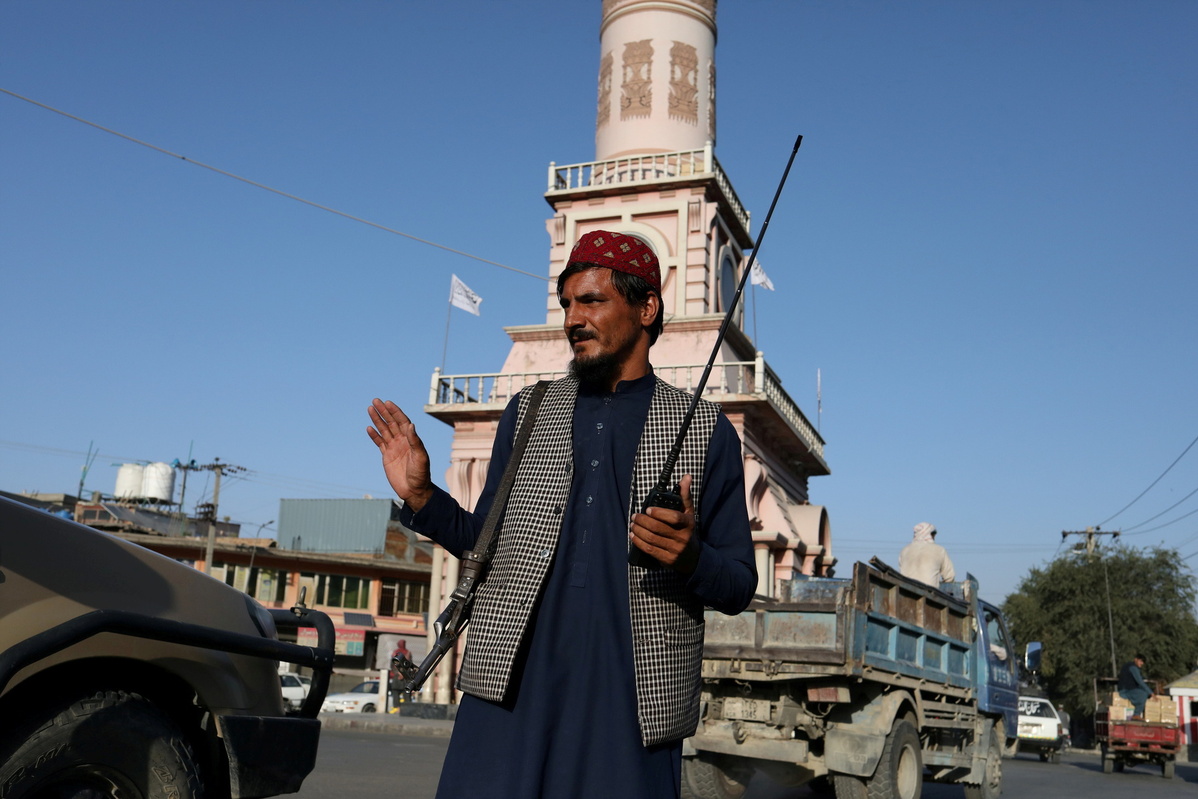Neighbors willing to give new rulers more time
By JAN YUMUL in Hong Kong | China Daily | Updated: 2021-09-02 10:05

The Taliban's takeover of Afghanistan has prompted discussions about the security implications for neighboring countries, but, for the most part, these countries are adopting a wait-and-see approach toward the war-torn country's new rulers, experts said.
Middle Eastern nations are closely monitoring Afghan developments to see whether peace prevails and the Taliban rule with a more moderate approach compared with their previous stint in power that ended almost 20 years ago.
Dina Yulianti Sulaeman, director of the Indonesia Center for Middle East Studies, said Taliban leaders have delivered narratives that tend to be moderate, promising peace and protecting women's rights.
Alessandro Arduino, a principal research fellow at the Middle East Institute of the National University of Singapore, said the Middle East is hoping for more moderate elements of the Taliban movement to prevail.
How the occupation of Kabul unfolds in the coming months will be crucial in determining if that hope is not misplaced, he said.
Rasha Loai Al Joundy, a senior researcher at the Emirati think tank Dubai Public Policy Research Centre, said the Gulf and other Middle Eastern countries are worried that the situation in Afghanistan could deteriorate quickly.
Al Joundy cited a United Nations Security Council report in June that warned that 8,000 to 10,000 "foreign terrorist fighters" may have entered Afghanistan.
How the Taliban proceed, now that Aug 31 is behind them, will inform assessments on the way they respond to such threats, said Al Joundy, referring to the United States' deadline for its withdrawal of troops.
The 57-member Organization of Islamic Cooperation, headquartered in Saudi Arabia, has vowed to engage in Afghanistan's peace process and urged its future leaders to guard against allowing the country being used as a platform or safe haven for terrorists.
In the Gulf region, the United Arab Emirates has agreed to host 5,000 Afghans to be evacuated from Afghanistan en route to third countries at the request of the US. Bahrain has allowed flights to make use of its transit facilities. Saudi Arabia has called on the Taliban and Afghan parties to work to preserve stability in the country.
Qatar has been playing the role of mediator, given the Taliban's office in the capital Doha.
"Qatar has old relations with the Taliban, and clearly, it is doing a good job advising them along the way.... (The Taliban) are listening …now, but that could change in the future," Al Joundy said.
'Impartial mediator'
"Qatar considers what is happening is a magnification of its role in Afghanistan. But that doesn't mean it doesn't share the same security concerns with other countries in the region. Being cautious is the wise policy, (as well as) cooperating and gathering information to continuously assess the threat," she said.
Arduino said an essential part of Qatar's foreign policy has been its long-standing support for mediation and peace talks.
"Qatar's own position on the future of Afghanistan is clear and related to a power-sharing and peaceful resolution. However, its role is still going to be as an impartial mediator," Arduino said.
At a webinar on Thursday, one speaker observed that West Asia as a whole lacks a unified front when dealing with Afghanistan. The event was organized by the Institute of Strategic Studies Islamabad's Centre for Afghanistan, Middle East and Africa, a think tank, and the Middle East Monitor, a press monitoring organization.
Tamim Asey, founder and executive chairman of the Institute of War and Peace Studies, a think tank in Kabul, said the UAE and Saudi Arabia have a different policy from that of Qatar in regard to a political settlement for Afghanistan.
The Taliban, the hard-line Islamist group that emerged in the 1990s, is working to form an inclusive government after US-led forces completed their final troop withdrawal and evacuations.
Sulaeman said the two decades of US occupation "have brought much misery" to the Afghan people.
While one can argue that the US has succeeded in promoting education and freedom for Afghan women, there is a need to question the parameters of that success, she said, noting the "daily bombing and violence".
























